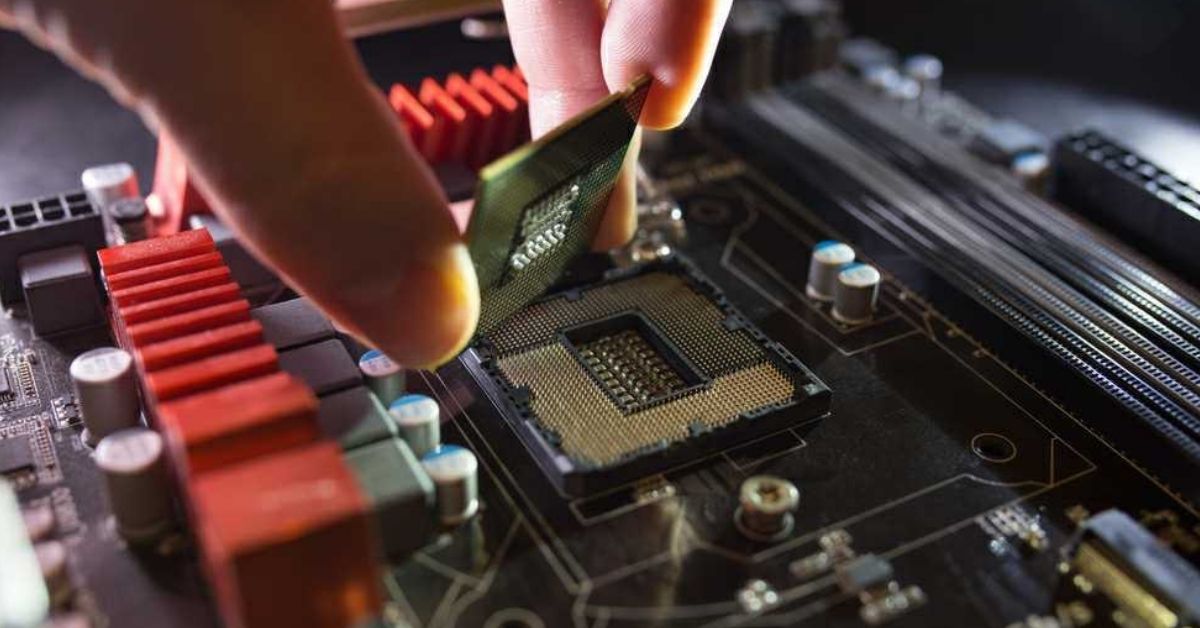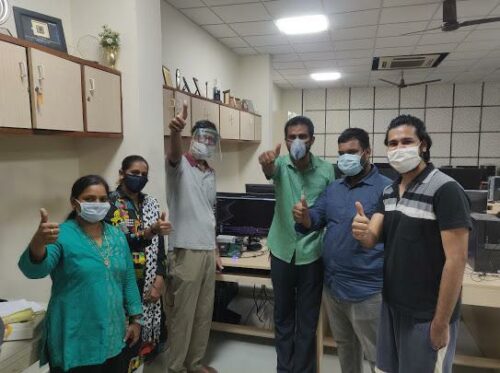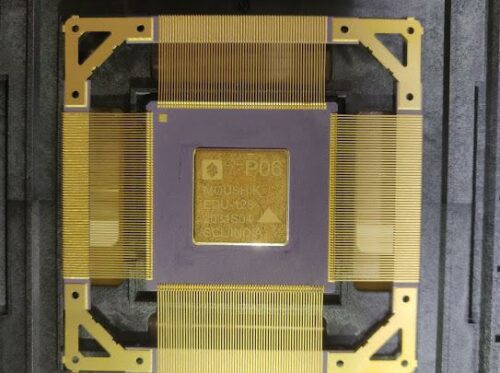Meet IIT-M’s Moushik: A Giant Leap on India’s Road to Tech Independence
Prof Kamakoti of IIT Madras explains his team’s make-in-India invention, Moushik, and the importance of indigenous technology.

Researchers at the Indian Institute of Technology (IIT), Madras have created a completely open-source microprocessor, the first of its kind to be made in India. Moushik, named for its small size, is special in many ways and is a crucial step in our country’s journey to self-sufficiency in technology.
Key Feature: Transparency & Openness
“A thing should do what you want it to do. But more importantly, it should not do what you don’t want it to do,” Prof Kamakoti Veezhinathan tells The Better India, explaining his team’s motivation for building this fully home-grown, open-source microprocessor.
A microprocessor, which can be thought of as a tiny CPU – tinier than the width of a human hair – has a wide range of applications. It is an essential component of credit cards, washing machines, phones, computers, drones, televisions, cars, elevators – pretty much anything that uses electronics for its functioning.
At the moment, the microprocessors used in these products are made by private manufacturers from countries like the US, China, Taiwan, and South Korea. The problem with this is that they are black boxes, meaning their workings are closed to us at some level or the other. In certain cases, the architecture is known only to the designers. In others, the code through which the microprocessor controls the devices is hidden.
This limits how flexibly we can use the processor, but an even bigger issue is the inherent security risk. There’s no way of knowing if any information is being collected or how secure the software is against hacking. A bad idea, especially when it comes to sensitive devices like credit cards, surveillance equipment and military devices.
Moushik removes these concerns by being open-source. Even its communication in 1s and 0s with the machines it controls is entirely transparent – written in an internationally understood machine assembly language called RISC-V. Moushik’s transparency makes it super-safe for anyone to use.

A Chip for the Growing IoT Market
Moushik caters to the increasing needs of India’s quickly expanding IoT market. IoT devices from automatic coffee makers to completely connected smart homes and smart cars are on the rise and will become much more common soon. They work primarily on sensors and cross-communication between various devices and components.
Unlike many microprocessors which are domain-specific, Moushik is a general-purpose chip compatible with many appliances. Its high adaptability and small power consumption make it perfect for programming IoT devices.
What makes Moushik so flexible? Moushik comes embedded in a motherboard called Ardonyx (also made in India) which has connectors with more than a 100 different input-output points. These peripherals and slots make it possible to link it up with any gadget – from an agricopter (a drone to spray pesticides) to a washing machine. You can think of it as the microprocessor equivalent of a multi-pin adaptor, compatible with many devices.
The Ardonyx motherboard with the integrated Moushik chip will cost about Rs 5000, estimates Prof Kamakoti.
Moushik’s openness, flexibility, and low cost make it ideal for startups and student projects, as well as industrial applications.
Potential applications of Moushik include smart home devices such as smart lighting, refrigerators, and washing machines, credit cards and metro cards, electronic voting devices, office and health management systems, surveillance cameras, and safe locks, to list a few.
Completely Home-Made
Moushik is the third chip in the Shakti family of microprocessors. Shakti is an open-source initiative by the Reconfigurable Intelligent Systems Engineering (RISE) group at IIT Madras to develop indigenous industrial-grade processors and boards.
Moushik, launched earlier this week, was designed and developed over the last year at the Pratap Subrahmanyam Centre of the RISE group by a team of 12, led by Prof. Kamakoti. The Ardonyx motherboard was created in partnership with the Semi-Conductor Lab (SCL), ISRO, Chandigarh. The project is funded by the Ministry of Electronics and Information Technology.
Making a microprocessor comes with many challenges, but doing so during a pandemic is even harder.
“But it’s a good thing,” says Prof. Kamakoti, “We figured out how to automate many processes and coordinate work remotely. This will be great for future projects.” The lab was still running, with social distancing and other COVID-19 safety protocols in place.
Moushik will be available in the market soon. The team is now focusing on mass-manufacturing the chip. It will also be part of the Swadeshi Microprocessor Challenge at IIT Madras in which students, startups, and innovators compete to develop tech using microprocessors of the Shakti and Vega series.
Watch Prof Kamakot booting up Moushik:

This story made me
- 97
- 121
- 89
- 167
Tell Us More
We bring stories straight from the heart of India, to inspire millions and create a wave of impact. Our positive movement is growing bigger everyday, and we would love for you to join it.
Please contribute whatever you can, every little penny helps our team in bringing you more stories that support dreams and spread hope.



















